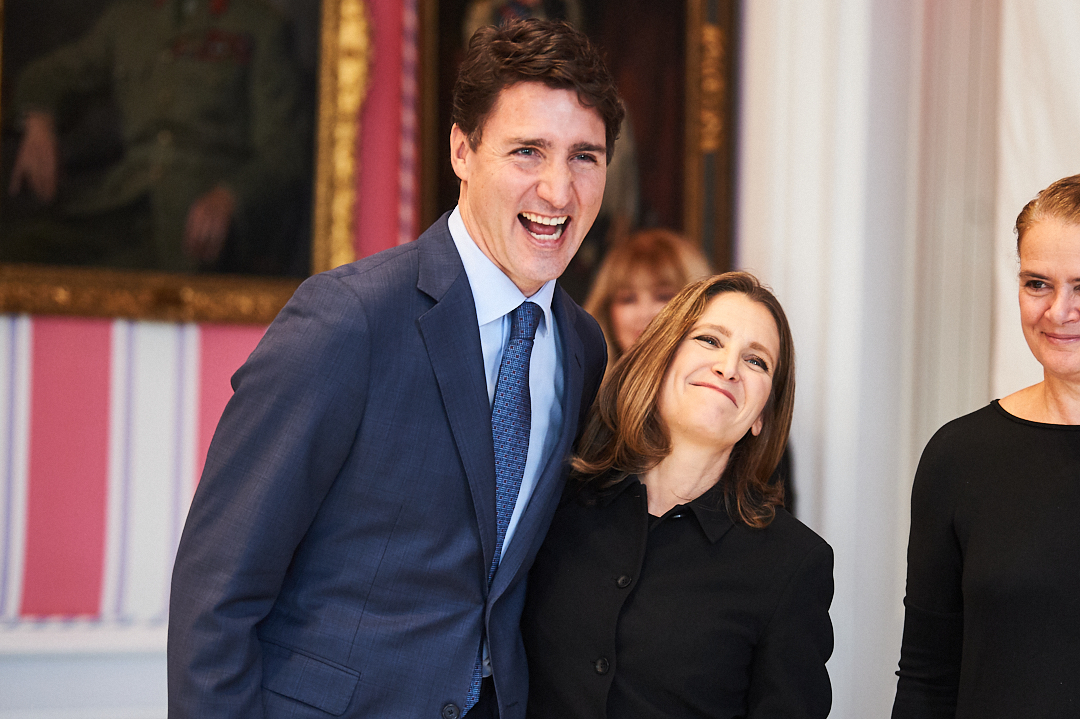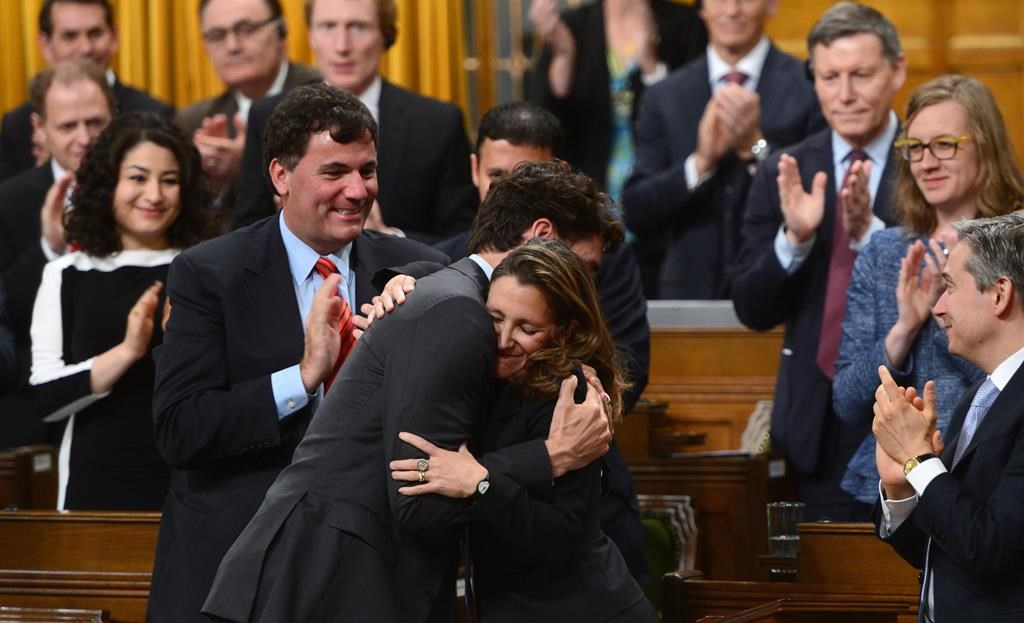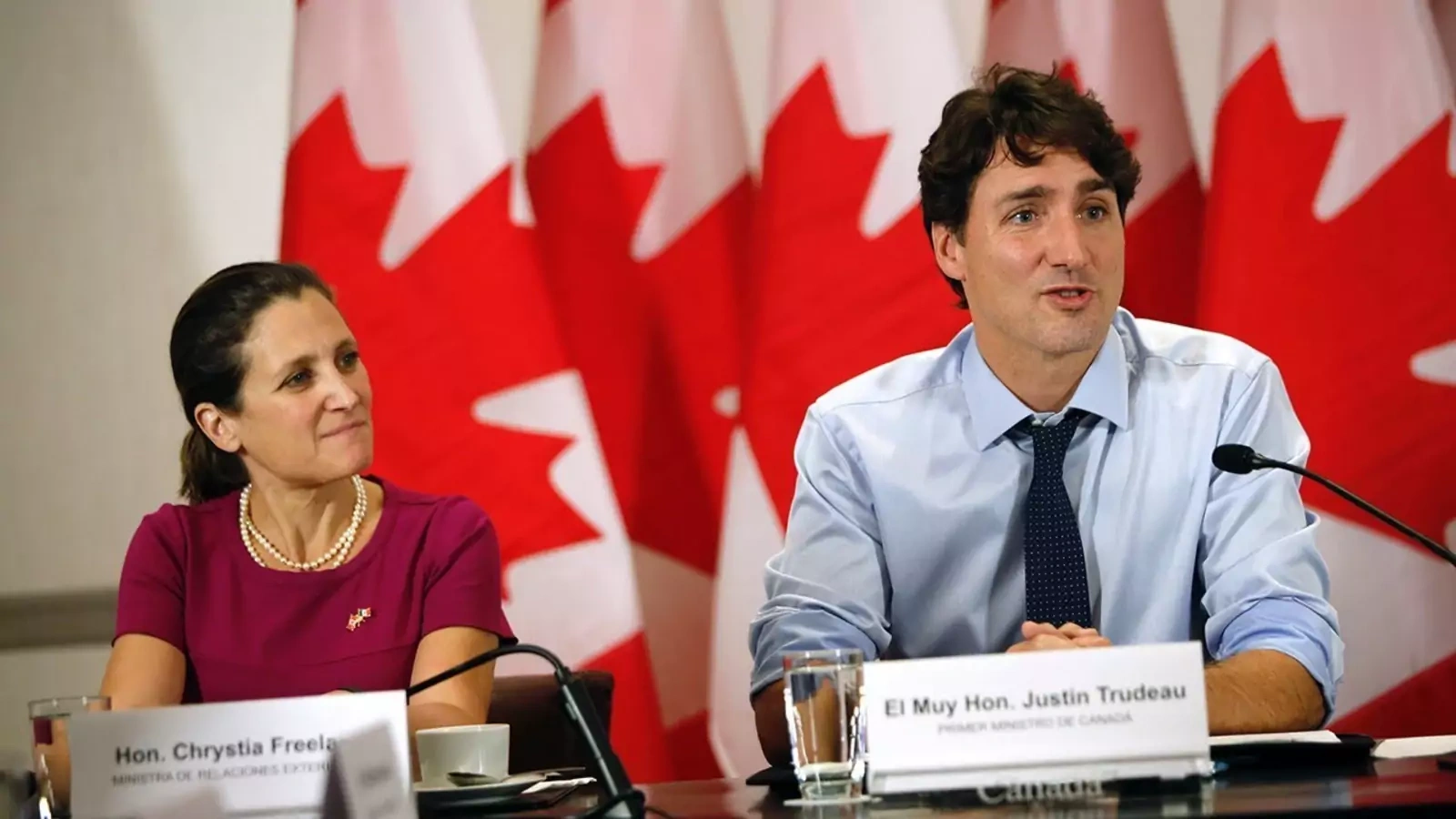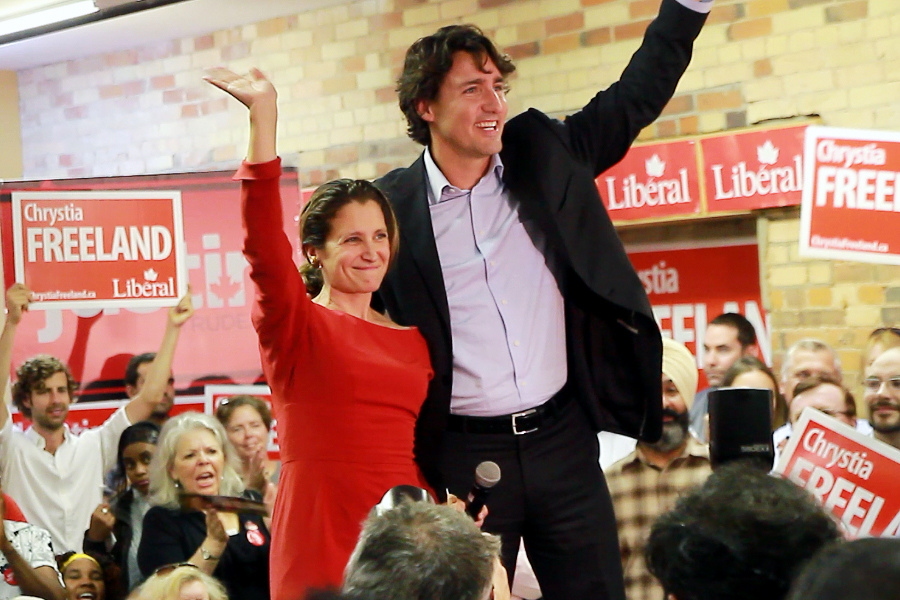Canada faces new world order in the face of dramatic change, says Chrystia Freeland
In what was billed as a major speech on Canada’s foreign policy priorities, the Foreign Affairs Minister sketched out the challenges the country faces today and the role it aspires to play.















OTTAWA—Canada is facing a new world order threatened by climate change, ISIL extremists, Russian aggression and the reality that many Americans want to "shrug off the burden of world leadership," Foreign Affairs Minister Chrystia Freeland said Tuesday.
In what was billed as a major speech on Canada's foreign policy priorities, Freeland sketched out the challenges the country faces today and the role it aspires to play.
She acknowledged the dramatic changes unfolding in Washington under U.S. President Donald Trump, who has pulled out of a global climate change pact, assailed NATO alliance for not pulling its fair share and talked up protectionist trade barriers.
While Freeland called the United States the "indispensable nation" in the postwar world order, those times may be coming to an end.
"It would be naive or hypocritical to claim … that all Americans today agree. Indeed, many of the voters in last year's presidential election cast their ballots, animated in part by a desire to shrug off the burden of world leadership. To say this is not controversial: it is simply a fact," Freeland said.
"Canada is grateful, and will always be grateful, to our neighbour for the outsized role it has played in the world. And we seek and will continue to seek to persuade our friends that their continued international leadership is very much in their national interest—as well as that of the rest of the free world," she said according to a prepared text of her remarks.
In laying out Canada's foreign policy priorities, Freeland said that Ottawa will "robustly" support the rules-based international order and its institutions.
Those include G7, the G20, APEC, the Commonwealth and La Francophonie, NATO and the UN, she said.
In those forums, Canada will promote Canadian values that include feminism, and the promotion of the rights of women and girls, Freeland said.
"Women's rights are human rights. That includes sexual reproductive rights and the right to safe and accessible abortions. These rights are at the core of our foreign policy," Freeland said.
In the days ahead, International Development Minister Marie-Claude Bibeau will unveil a "feminist international assistance policy," which will target women's rights and gender equality," Freeland said.
"We will put Canada at the forefront of this global effort," she said.
She said Canada has a "huge interest in an international order based on rules.
"One in which more powerful countries are constrained in their treatment of smaller ones by standards that are internationally respected, enforced and upheld," she said.
"The single most important pillar of this, which emerged following the carnage of the First and Second World Wars, is the sanctity of borders. And that principle, today, is under siege," she said.
That's why countries rallied behind Ukraine, after Russia's annexation of Crimea, and why the global community has joined in the fight against ISIL, also known as ISIS and Daesh, in Syria and Iraq, she said.
RELATED:
"The atrocities of Daesh directly challenge both the sanctity of borders and the liberal international order itself. They create chaos, not only because of the carnage they perpetrate on their innocent victims, but because of the humanitarian crises and migratory explosions that follow," she said.
Freeland also pledged that the Liberal government will boost investments in the military "to not only redress years of neglect and underfunding, but also to place the Canadian Armed Forces on a new footing—with the equipment, training, resources and consistent, predictable financing."
The government is expected to reveal more on that front Wednesday when it releases its defence policy review, a document that will detail military policy and funding for the coming years.
Freeland acknowledged that having the U.S. as a neighbour has brought benefits but she cautioned that Canada should avoid taking a "free ride" on American military might.
"Canada's geography has meant that we have always been able to count on American self-interest to provide a protective umbrella beneath which we have found indirect shelter," Freeland said.
"To rely solely on the U.S. security umbrella would make us a client state. And although we have an incredibly good relationship with our American friends and neighbours, such a dependence would not be in Canada's interest. That is why doing our fair share is clearly necessary," Freeland said.
"It is by pulling our weight in this partnership, and in all our international partnerships, that we, in fact, have weight," she said.
The third pillar of Canada's foreign policy will be trade, starting with the renegotiation of the North American Free Trade Agreement and renewed efforts to diversify trade worldwide," she said.
"We will actively seek new trade agreements that further Canadian economic interests and that reflect our values,' Freeland said.
She touted the benefits of trade, saying barriers to global commerce in the 1930s proved costly.
"Rising trade barriers hurt the people they are intended to help. They curb growth, stifle innovation and kill employment. This is a lesson we should learn from history," Freeland said.
Freeland highlighted Canada's past roles on the world stage, in diplomatic circles and battlefields, from Europe to Korea to Afghanistan.
But the global order is changing in unprecedented ways, she said, with the emergence of the global south and Asia, notably China. That brings the need to integrate these countries into the world's economic and political system "in a way that is additive, that preserves the best of the old order that preceded their rise, and that addresses the existential threat of climate change," she said.
She echoed Ottawa's disappointment at the decision by the Trump administration to pull out of the Paris climate change pact.
"That said, we will continue to seek opportunities for constructive progress on the environment, wherever we can find them, with our counterparts in Washington and across the great United States, at all levels of government and with partners in business, labour and civil society," Freeland said.
No comments:
Post a Comment
Comments always welcome!